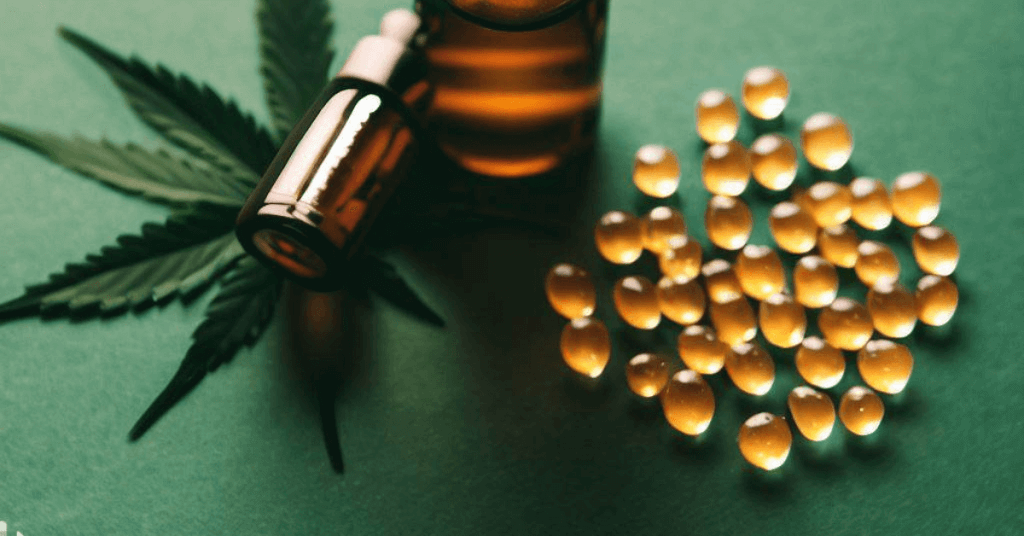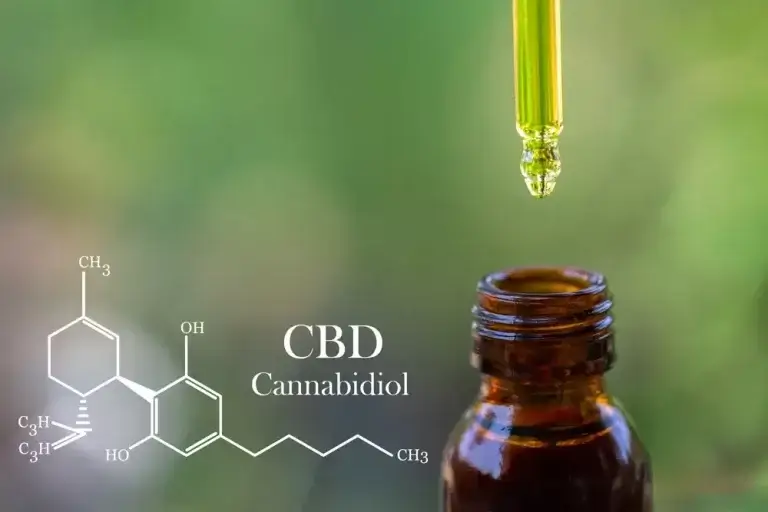Finding the right CBD dosage can be tricky. CBD, or cannabidiol, is a natural compound found in hemp and cannabis plants. It has gained popularity in recent years for its potential health benefits, such as reducing pain, inflammation, anxiety, and seizures.
Here are five factors to consider when deciding how much CBD to take:
1. Top Benefits of CBD
CBD works by interacting with the endocannabinoid system (ECS), a network of receptors and molecules that regulate various bodily functions, such as mood, appetite, sleep, and immune response. By influencing the ECS, CBD may help restore balance and harmony in the body.
Some of the top benefits of CBD include:
- Relieving chronic pain and inflammation: CBD may have anti-inflammatory and analgesic effects that can help people with conditions like arthritis, fibromyalgia, neuropathy, and cancer pain.
- Reducing anxiety and stress: CBD may have anxiolytic and antidepressant effects that can help people with disorders like generalized anxiety disorder (GAD), social anxiety disorder (SAD), post-traumatic stress disorder (PTSD), and obsessive-compulsive disorder (OCD).
- Improving sleep quality and duration: CBD may have sedative and hypnotic effects that can help people with insomnia, restless leg syndrome (RLS), and other sleep problems.
- Managing seizures and epilepsy: CBD may have anticonvulsant and neuroprotective effects that can help people with epilepsy and other seizure disorders. In fact, the only FDA-approved CBD product is Epidiolex, a prescription drug for two rare forms of epilepsy.
- Supporting brain health and cognition: CBD may have neurogenic and neuroprotective effects that can help people with neurodegenerative diseases like Alzheimer’s, Parkinson’s, and multiple sclerosis (MS). CBD may also enhance memory, learning, and focus.
2. Factors Affecting CBD Dosage
There is no universal dosage of CBD that works for everyone. The optimal amount of CBD depends on several factors, such as:
- Body weight: Generally, heavier people need more CBD than lighter people to achieve the same effects.
- The condition being treated: Different conditions may require different dosages of CBD. For example, chronic pain may need higher doses than anxiety.
- Individual body chemistry: Everyone has a unique endocannabinoid system that responds differently to CBD. Some people may be more sensitive or tolerant to CBD than others.
- Concentration of CBD: Different products have different amounts of CBD per serving. For example, a 30 mL bottle of CBD oil may contain 300 mg, 600 mg, or 1200 mg of CBD. The concentration of CBD affects how much you need to take.
3. Start Small and Increase Slowly Until You Reach the Desired Effect
The best way to find your ideal dosage of CBD is to start low and go slow. This means starting with a small amount of CBD and gradually increasing it until you feel the desired effect.
A common starting dose is 5 to 10 mg of CBD per day. You can take this dose once or twice a day, depending on your preference and needs. You can use a dropper or a measuring spoon to measure your dose accurately.
After taking your initial dose for a few days or a week, you can assess how you feel. If you are not satisfied with the results, you can increase your dose by 5 to 10 mg at a time. You can repeat this process until you find the dose that works for you.
It may take some time and experimentation to find your optimal dosage of CBD. Be patient and consistent with your dosing regimen. Keep track of your dose, frequency, effects, and side effects in a journal or an app.
4. Amount of CBD
The amount of CBD you need to take depends on the product you are using and how you are using it. Some products are easier to dose than others.
For example:
- Gummies or capsules: These products are pre-measured and convenient to use. You just need to follow the instructions on the label and take one or more gummies or capsules per day.
- Tinctures or oils: These products are liquid extracts that come with a dropper or a spray bottle. You need to measure your dose carefully by counting the drops or sprays. You can take these products sublingually (under the tongue) or add them to food or drinks.
- Topicals or creams: These products are applied directly to the skin for localized relief. You need to rub a generous amount of the product onto the affected area.
To help you dose your CBD tinctures or oils, here is a table that shows the amount of CBD per drop and per bottle for different concentrations:
| Concentration | CBD per drop | CBD per 30 mL bottle |
|---|---|---|
| 300 mg | 0.5 mg | 300 mg |
| 600 mg | 1 mg | 600 mg |
| 1200 mg | 2 mg | 1200 mg |
If you are using a 600 mg CBD tincture and you want to take 10 mg of CBD per day, you need to take 10 drops per day.
5. Can You Take Too Much?
CBD is generally considered safe and well-tolerated by most people. According to a 2017 review of research, humans can safely tolerate up to 1,500 mg per day of CBD
However, it is possible to take too much CBD and experience some side effects. Some of the common side effects of CBD include:
- Drowsiness and sedation: CBD may make you feel sleepy or relaxed, especially in high doses or when combined with other sedating substances, such as alcohol or medications.
- Gastrointestinal issues: CBD may cause nausea, vomiting, diarrhea, or loss of appetite, especially in high doses or when taken on an empty stomach.
- Dry mouth: CBD may reduce saliva production and cause dry mouth or thirst.
- Low blood pressure: CBD may lower blood pressure and cause dizziness, lightheadedness, or fainting, especially in high doses or when combined with other blood pressure-lowering substances, such as medications or alcohol.
Uncommon (but important to know) side effect:
- Possible Liver damage: CBD may interact with liver enzymes and affect the metabolism of certain drugs, such as warfarin, valproate, and clobazam. This may increase the risk of liver damage or bleeding.
- People with liver problems or who take liver-affecting drugs should consult their doctor before using CBD.
To avoid side effects, you should start with a low dose of CBD and increase it gradually. You should also monitor your reactions and adjust your dose accordingly. You should also avoid taking CBD with alcohol or other substances that may enhance its effects.
If you experience any severe or persistent side effects, you should stop using CBD and seek medical attention immediately.
CBD is a promising natural remedy for various health conditions, but it is not a magic bullet. You need to consider several factors when deciding how much CBD to take and how to use it safely and effectively. Remember to consult your doctor before using CBD, especially if you have any medical conditions or take any medications.

Further Reading
These are articles with supporting information about finding the right dosage.
(1) CBD dosage: Benefits, safety, and side effects – Medical News Today. https://www.medicalnewstoday.com/articles/327518.
(2) CBD Oil: Uses, Benefits, Side Effects, Dosage, Precautions. https://www.verywellhealth.com/cbd-oil-benefits-uses-side-effects-4174562.
(3) Common CBD Side Effects You Should Understand – Verywell Mind. https://www.verywellmind.com/potential-side-effects-of-cbd-5072819.
(4) The 5 Most Common Side Effects of CBD and What To Do – MyDosage. https://www.mydosage.com/cbd-guide/cbd-side-effects.
(5) CBD for Allergy Symptoms: Benefits, Dosage, Side Effects – Verywell Health. https://www.verywellhealth.com/cbd-for-allergies-5197753.
